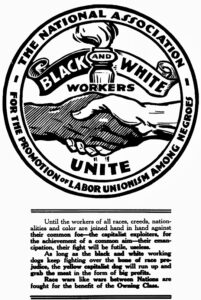[Eugene V. Debs Speaks to Thousands at Grand Picnic
Sunday June 16, 1912 – Full Text of Speech, Part I:]
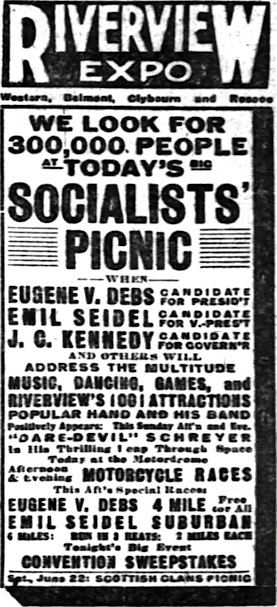
Friends, Comrades, and Fellow-Workers:— We are today entering upon a national campaign of the profoundest interest to the working class and the country. In this campaign there are but two parties and but one issue. There is no longer even the pretense of difference between the so-called Republican and the so-called Democratic parties. They are substantially one in what they stand for. They are opposed to each other on no question of principle but purely in a contest for the spoils of office.
To the workers of the country these two parties in name are one in fact. They-or rather it-stands for capitalism, for the private ownership of the means of subsistence, for the exploitation of the workers, and for wage-slavery.
Both of these old capitalist class machines are going to pieces. Having outlived their time they have become corrupt and worse than useless and now present a spectacle of political degeneracy never before witnessed in this or any other country. Both are torn by dissension and rife with disintegration. The evolution of the forces underlying them is tearing them from their foundations and sweeping them to inevitable destruction.
We have before us in this capital at this hour an exhibition of capitalist machine politics which lays bare the true inwardness of the situation in the capitalist camp. Nothing that any Socialist has ever charged in the way of corruption is to be compared with what Taft and Roosevelt have charged and proved upon one another. They are both good Republicans, just as Harmon and Bryan are both good Democrats-and they are all agreed that socialism would be the ruination of the country.
Taft and Roosevelt in the exploitation of their boasted individualism and their mad fight for official spoils have been forced to expose the whole game of capitalist class politics and reveal themselves and the whole brood of capitalist politicians in their true role before the American people. They are all the mere puppets of the ruling class. They are literally bought, paid for, and owned, body and soul, by the powers that are exploiting this nation and enslaving and robbing its toilers.
What difference is there, judged by what they stand for, between Taft, Roosevelt, LaFollette, Harmon, Wilson, Clark, and Bryan?
Do they not all alike stand for the private ownership of industry and the wage slavery of the working class?
What earthly difference can it make to the millions of workers whether the Republican or Democratic political machine of capitalism is in commission?
That these two parties differ in name only and are one in fact is demonstrated beyond cavil whenever and wherever the Socialist Party constitutes a menace to their misrule. Milwaukee is a case in point and there are many others. Confronted by the Socialists these long pretended foes are forced to drop their masks and fly into each other’s arms.
The baseness, hypocrisy, and corruption of these twin political agencies of Wall Street and the ruling class cannot be expressed in words. The imagination is taxed in contemplating their crimes. There is no depth of dishonor to which they have not descended-no depth of depravity they have not sounded.
To the extent that they control elections the franchise is corrupted and the electorate debauched, and when they succeed to power, it is but to execute the will of the Wall Street interests which finance and control them. The police, the militia, the regular army, the courts, and all the powers lodged in class government are all freely at the service of the ruling class, especially in suppressing discontent among the slaves of the factories, mills, and mines, and keeping them safely in subjugation to their masters.
How can any intelligent, self-respecting wage worker give his support to either of these corrupt capitalist parties? The emblem of a capitalist party on a workingman is the badge of his ignorance, his servility and shame.
Marshaled in battle array against these corrupt capitalist parties is the young, virile, revolutionary Socialist Party, the party of the awakening working class, whose red banners, inscribed with the inspiring shibboleth of class-conscious solidarity, proclaim the coming triumph of international socialism and the emancipation of the workers of the world.
Continue reading “Hellraisers Journal: Eugene Debs Opens Socialist Party Campaign with Speech at Chicago’s Riverview Park, Part I” →
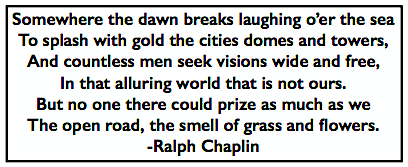 —————
—————
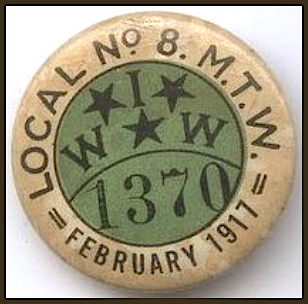
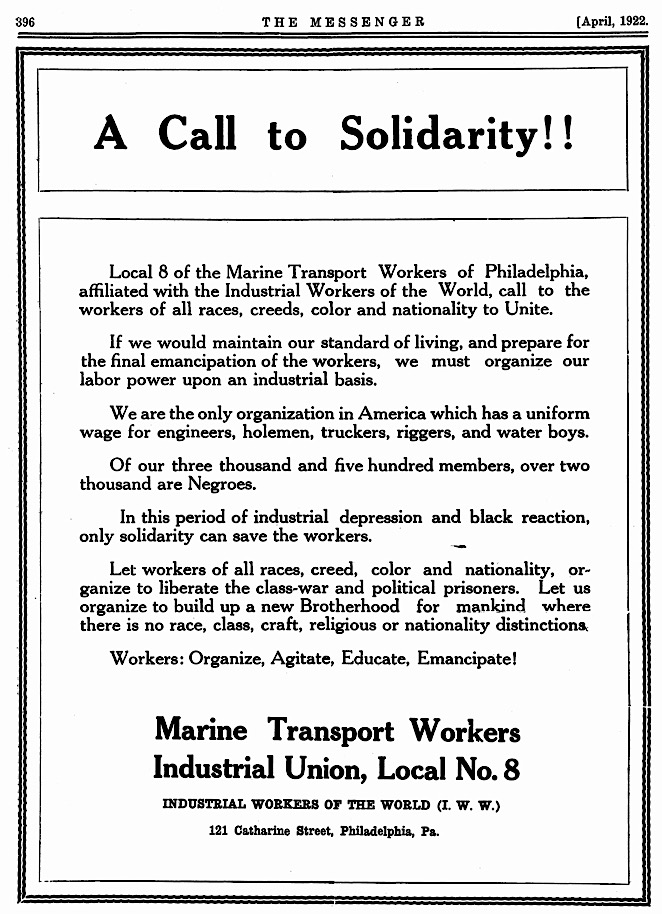
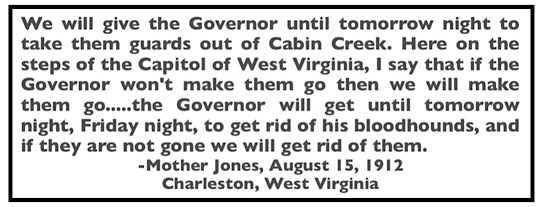 —————
—————
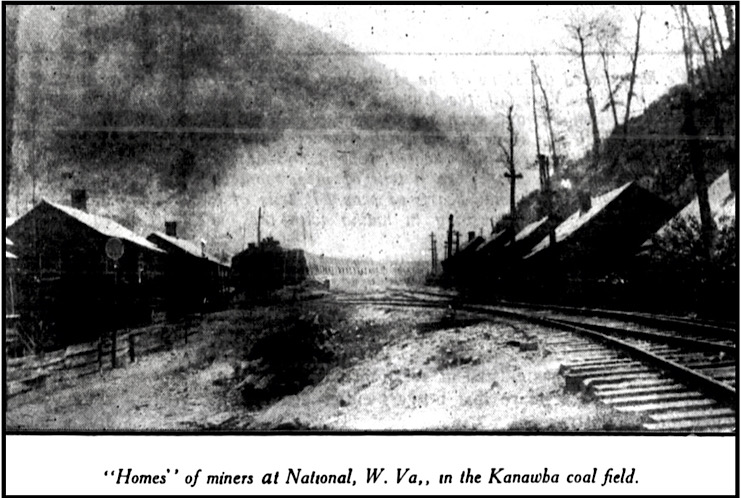
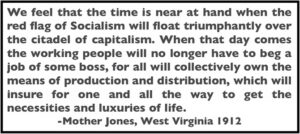 —————
—————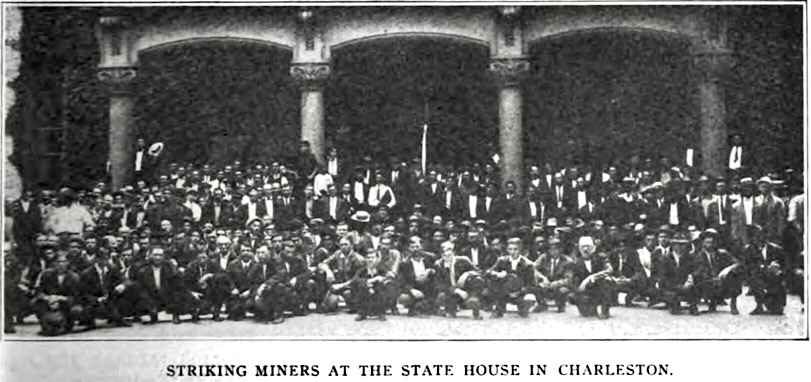
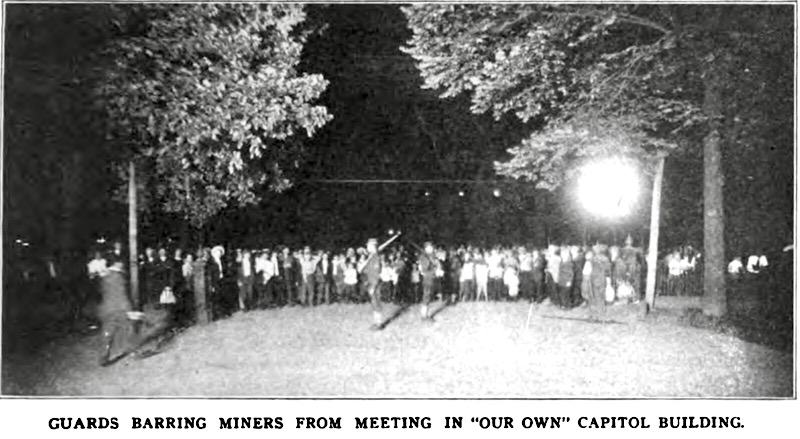
 —————-
—————-
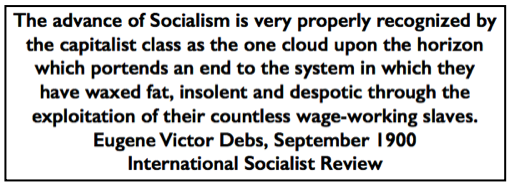 —————
—————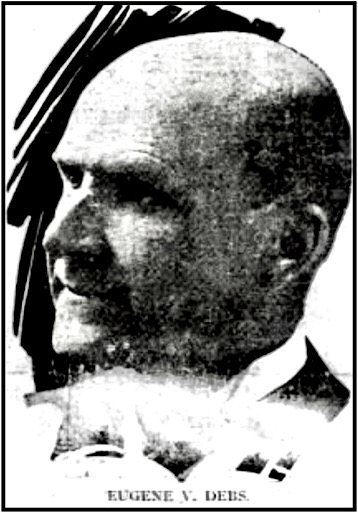
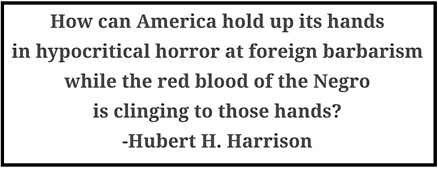 —————
—————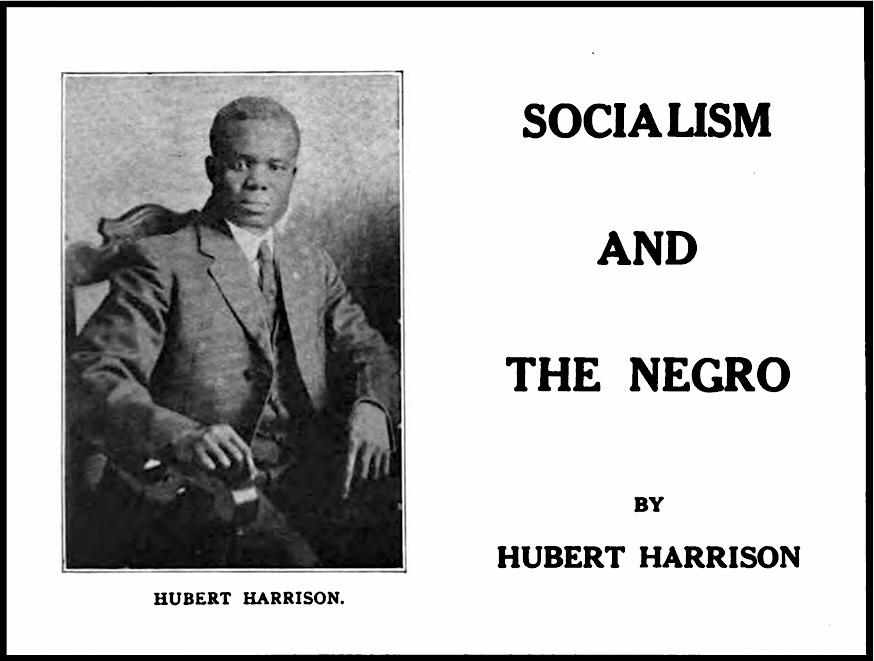
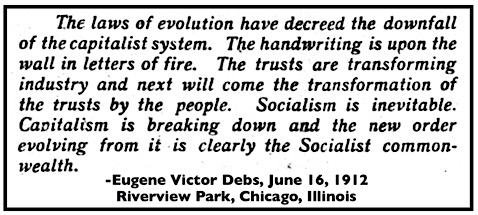 —————
————— The national convention of the Socialist Party recently held at Indianapolis was in all respects the greatest gathering of representative socialists ever held in the United States. The delegates there assembled demonstrated their capacity to deal efficiently with all the vital problems which confront the party. The convention was permeated in every fiber with the class-conscious, revolutionary spirit and was thoroughly representative of the working class. Every question that came before that body was considered and disposed of in accordance with the principles and program of the international movement and on the basis of its relation to and effect upon the working class.
The national convention of the Socialist Party recently held at Indianapolis was in all respects the greatest gathering of representative socialists ever held in the United States. The delegates there assembled demonstrated their capacity to deal efficiently with all the vital problems which confront the party. The convention was permeated in every fiber with the class-conscious, revolutionary spirit and was thoroughly representative of the working class. Every question that came before that body was considered and disposed of in accordance with the principles and program of the international movement and on the basis of its relation to and effect upon the working class.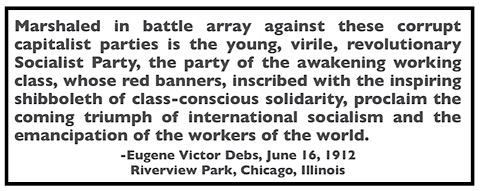 —————
————— —————
—————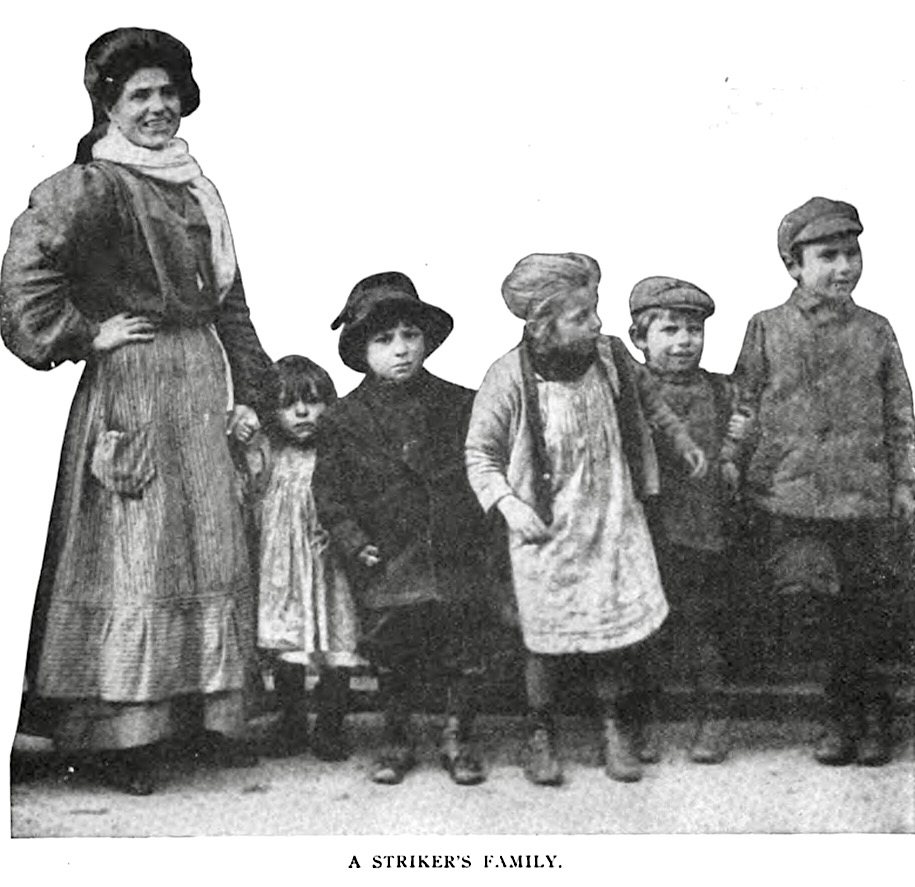
 —————
—————